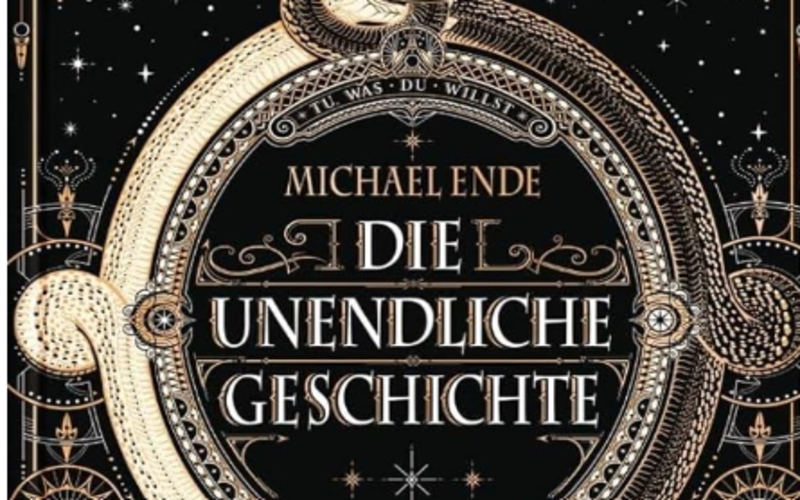
5 German Children’s Books Every Adult Should Have on Their TBR
When you think of the phrase “children’s book”, what comes to mind? Is it a fun and easy-to-understand story with a simple theme, written in uncomplicated language? Or perhaps it might also be about stories of cheerful and joyous moments, endless imaginations, and the fulfilment of dreams. Well, it is not wrong, but it is not entirely right either. In the context of German cultural literature, the trajectory of children's literature has evolved over time. During the Mittelalter, dominant themes revolved around ethics and religious values. However, a shift occurred in the 1970s, introducing themes that tackled societal problems and taboo subjects.
Now, let's explore the five German children's books that should be on every adult's To Be Read (TBR) list.
Through their simplicity, these books offer us profound messages, covering topics from the importance of time to the concept of death.
1. Momo
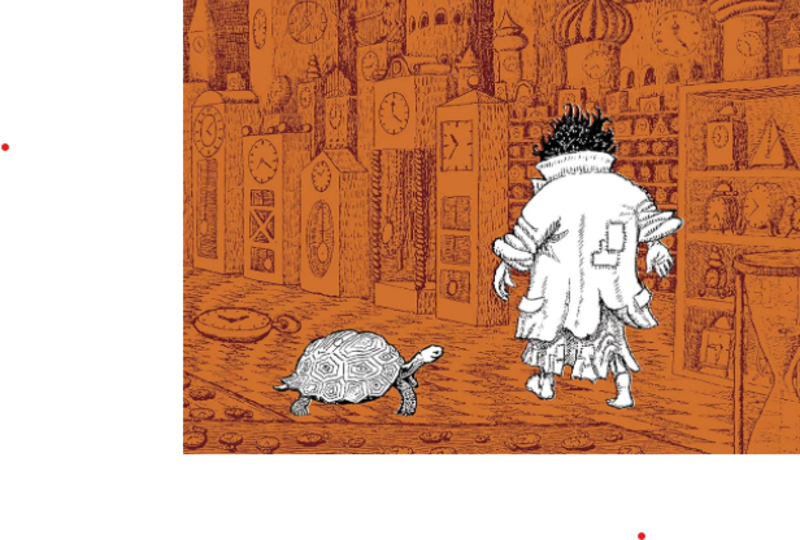
Momo is a fantasy novel written by Michael Ende, published in 1973, and spans a total of 304 pages. The full title of this children's book is Momo, oder die seltsame Geschichte von den Zeit-Dieben und von dem Kind, das den Menschen die gestohlene Zeit zurückbrachte (in English, translated to Momo or the Strange Story of the Time Thieves and the Child Who Brought the Stolen Time Back to the People). Momo tells the tales of time and human connections. It is the story of a mysterious and parentless little girl named Momo, who lives in the ruins of an amphitheater in an unknown city. Despite her illiteracy, Momo's ability to actively listen–not merely hear and nod her head–to people's stories is extraordinary. Her attentiveness and helpfulness have assisted people in the city in finding solutions to their problems. The conflict begins with the arrival of the Grey Men, the time thieves disguised as time savers. They cunningly persuade people that moments spent with loved ones and leisure activities are merely wasteful. Does this ring a bell? As we grow older, many of us encounter voices deeming activities like playing games, hanging out with friends, or taking afternoon naps as unproductive and time wasted. So, if you find yourself currently in this kind of state, reading Momo might help you rediscover the value of simple joys and precious connections, making you think about what truly matters as time goes by. This novel is highly popular. It has been adapted into audiobooks, films, and theatrical productions. It has also been translated into more than 30 languages, spanning European languages like English, Danish, Swedish, Spanish, and Hungarian, as well as Asian languages, including Japanese, Indonesian, Korean, Chinese, Thai, and Vietnamese. A year after its publication, in 1974, the novel received the 'Deutscher Jugendliteraturpreis' or German Youth Literature Award. This is a prestigious German literary award organized by the German Federal Ministry of Family Affairs, Senior Citizens, Women, and Youth.
2. Heidi by Johanna Spyri

Written by the Swiss author Johanna Spyri, Heidi is often considered a classic of German children’s literature, given the cultural bonds between Switzerland and Germany. It is also known as an all-time children’s novel that has been translated into over 50 languages, adapted into numerous films and TV series, and even played a big role in the contribution of Swiss tourism. Published in 1881, the story tells about an orphaned girl named Heidi who is forced by her aunt to live with her grandfather in a hut in the Swiss Alps. Heidi has no choice, and this is where her rural life stories begin. She used to be scared of living with her grumpy, unfriendly grandfather until she discovered the beauty of mountains, forming deep connections with nature. Reading this book enables you to discover joy in nature and cultivate compassion in everyday life. Heidi's kind and persevering character, set against the picturesque and tranquil backdrop of the Alpen Alps, brings solace to your heart amidst the hustle and bustle of adulting.
3. Tintenherz
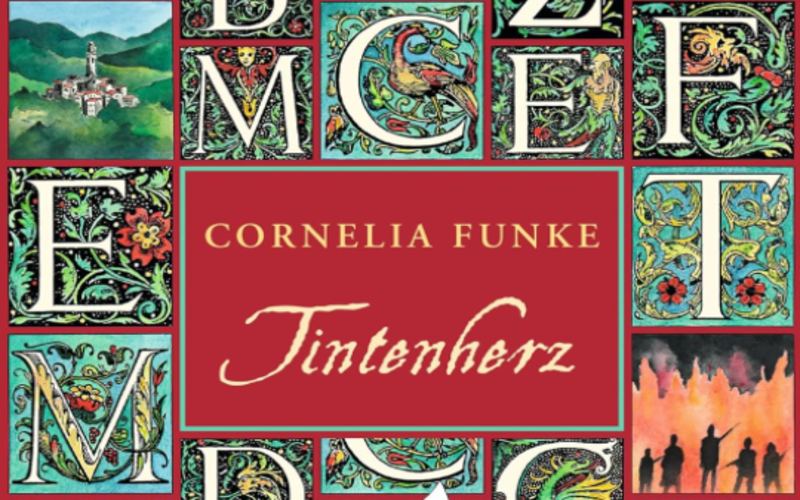
Inkheart (Tintenherz) is a fantasy trilogy written by Cornelia Funke, often known as the German JK Rowling for her imaginative storytelling. The trilogy, published in 2003 (Inkheart), 2005 (Inkspell), and 2007 (Inkdeath), has gained so much popularity. It has been translated into over 30 languages, ranging from Dutch with the title 'hart van inkt' to Korean with the title '잉크하트 (Inkeu Hateu).' The popularity of Inkheart led to its adaptation into a movie in 2009. What if you could bring the characters of a book into the real world simply by reading it out loud? This is the magic that Mortimer, or Mo, as called by his daughter, possesses. Working as a bookbinder, he has turned their home into a sanctuary of books. Meggie, the daughter, enjoys her reading activities at home until one day, a stranger named Dustfinger appears. Her life is never the same again. Meggie is unaware of her dad's magic, which may be connected to the disappearance of her mother nine years ago. Why should Inkheart be on your TBR list? This book lets your mind wander, giving you a short break from the complexities of adult life, where imagination often takes a back seat.
4. Die unendliche Geschichte by Michael Ende
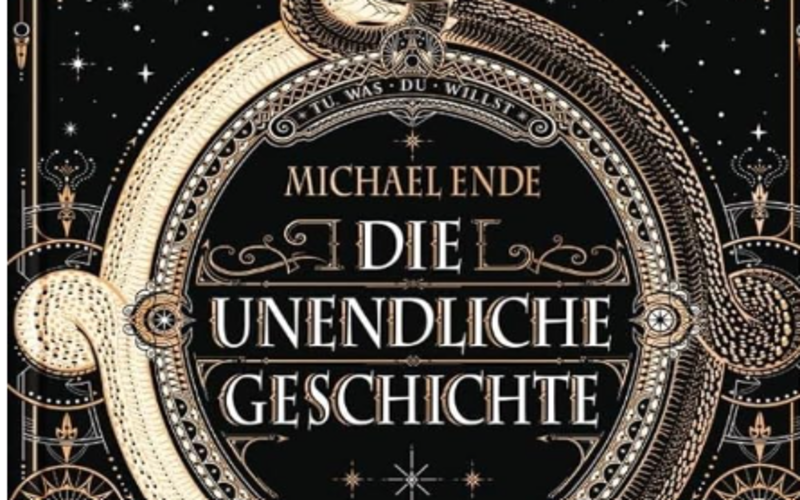
After the success of Momo, Michael Ende went on to create another masterpiece. Six years later, he released Die unendliche Geschichte, or in English The Neverending Story, a fantasy novel translated into over 30 languages. With over 400 pages, it tells the story of Bastian, a lonely boy with a lack of relationship with his dad and friends. Seeking sanctuary in a book that he somewhat stole from an antiquarian bookstore, titled “The Neverending Story”, Bastian becomes so engrossed in the narrative, sensing a similarity between his own life and the characters and stories within the book. Amidst the demands of adult responsibilities, including this children's novel in your TBR list is advised to immerse yourself in vast imagination—a gentle reminder to reconnect with your forgotten dreams.
5. Schlafen Fische?
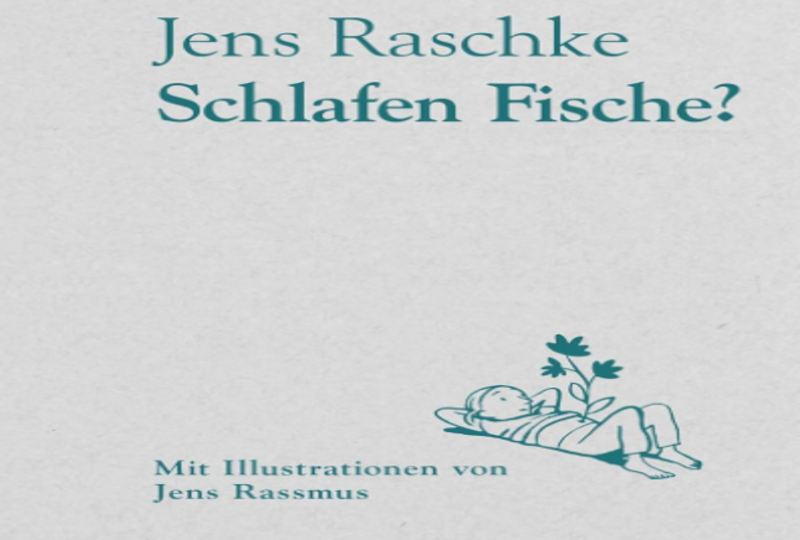
Have you ever read a story that deals with death through the lens of a young girl? If you haven’t, make Schlafen Fische a priority on your TBR list. Authored by Jens Raschke, the narrative of this book will take us on an emotional journey. Within the 64 pages, who would have guessed that the story tells about the death of a brother from the perspective of a 10-year-old sister? You will delve into Jette's world, the sister, and experience how she tries to understand the concept of death and the deep hurt she endured—expressed in the simplest words, yet carrying profound emotional weight. Through its non-linear storytelling structure, this book invites you to carefully explore its pages, where you may uncover the implicitly described theory of the five stages of grief. Titled 'Do Fish Sleep?' in English, this book is classified as a 'problemorientierter Kinderroman' or 'problem-oriented children's novel'. It belongs to the category of German children's literature that explores taboo themes for children, such as racism, wars, disabilities, divorces, and death. Within this category, children are portrayed as an integral part of society, facing and addressing real-life issues. The purpose is to provide children with understanding and assist them in shaping their worldview. Schlafen Fische was originally conceived as a stage performance around 2010. It was five years later when Jens Raschke, with his friend, Jens Rassmus, decided to adapt it into a children's novel. Despite facing initial rejections from publishers, the book was finally released in 2017 and since then has been translated into multiple languages, including English, Arabic, Polish, Swedish, and Russian.
Conclusion
In conclusion, these German children's books serve as more than mere tales for the young; they are life lessons, written with captivating storytelling, a touch of imagination, and the pureness of childhood. Let these books be our go-to in enduring life's burdens, our reminder of the importance of ordinary things that carry profound meanings. Regardless of age, the magic in children's literature has the power to rejuvenate our inner well-being. So, among these 5 German children's books that are a must on your TBR, which one do you want to read first?